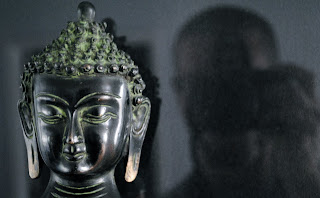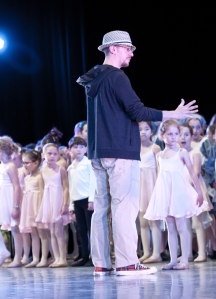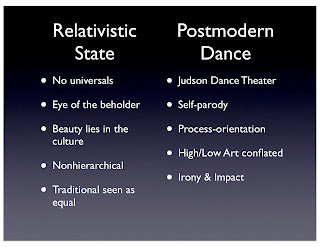In What Way Am I A Buddhist?
 In my tagline for this blog I write...”navigating the shifting seas of life as a dance-maker, teacher, and buddhist.” Since different people have different definitions--as well as different (mis)understandings--of what being Buddhist means, it might be helpful (at least for me) to clarify my personal perspective.
In my tagline for this blog I write...”navigating the shifting seas of life as a dance-maker, teacher, and buddhist.” Since different people have different definitions--as well as different (mis)understandings--of what being Buddhist means, it might be helpful (at least for me) to clarify my personal perspective.The teachings of Siddhartha Gautama (a.k.a. the Buddha) have spawned a wide variety of traditions, beliefs, and practices--some religious, some philosophical. From my perspective, I embrace Buddhism as a philosophy, not as a religion.
I believe Siddhartha’s original teachings were not meant to be religious or metaphysical. Although, he did allow that an understanding that still included many of the folk traditions, rituals, and myths of the respective cultures was acceptable until a deeper understanding was reached.
So, I don’t buy into the magical/mythical/metaphysical attributes to which some traditional Buddhist perspectives adhere. Rather, I see the metaphysical aspects of these approaches as remnants of the folk cultures that adopted Buddhist thought--whether it be Hindu ideas in Indian versions of Buddhism or Shinto ideas in Japanese versions of Buddhism. To be clear, I don’t believe in the pantheon of Hindu gods and goddesses, I don’t believe that advanced meditators can levitate, and I don’t believe that literal reincarnation occurs.
So, that’s enough about what I don’t believe--what do I believe? I think of reincarnation in a figurative sense. It is being reborn every single second to the reality of the present moment instead of being caught up in the confusion of fears and hopes of the past and future. While we all exist literally in the present, many of us live in our heads in the fog of the past (regrets, shame, holding on to memories) or the future (fears and hopes).
Being awakened, or mindful, to the reality of the present moment rather than living in the illusion of the past and future, is what Buddhism teaches. Literally, the Buddha means the “awakened one.” In this sense, it is more psychological than religious. And, this insight--followed logically--leads to a philosophy of life. That is the perspective that I take. This insight leads me to three core principles.
One: Reality is interconnected--one cosmically huge ecosystem where humanity is not solely autonomous or solely dependent. We act at times independently, but it does effect the whole. We act at times as part of the whole, but it does effect us individually. Contrast this with Ayn Rands extreme objectivism that sees altruism as evil (which is really what some of our politicians are saying when they whisper the code phrase--Who is John Galt?) or (on the flip side) the extreme ascetics who give up belongings and starve themselves to death while praying for the benefit of others. Reality is not a case of either/or. Rather, both autonomy and communion are part of our nature.
Two: Reality is constantly changing. The illusion that something is unchanging is simply an erroneous belief of which our minds convince us. I am not exactly the same person I was when I started writing this paragraph. Not only have my ideas changed from the process of forming these thoughts and putting them down on my laptop, but also my body, every single cell, has aged and adapted in some way.
Three: Probability takes precedence over certainty--just ask Schrodinger’s cat. Since our system for figuring life out (our minds, our bodies, our communities) are limited and flawed, we cannot know anything with 100% certainty. However, that does not mean we should wallow in the nihilistic pit of extreme postmodern relativity. Universals do exist. And even though we cannot be 100% sure that the universals we believe to be true are true, we should still accept them as a working hypothesis and continue to move toward a clearer understanding. This means we have to be comfortable with paradox.
If I had to sum up my personal perspective of Buddhism in a nutshell it would be this:
Reality is, most probably, an interconnected whole in constant flux and flow.
And, that is a nut that I can chew on for a while.


Comments
Post a Comment